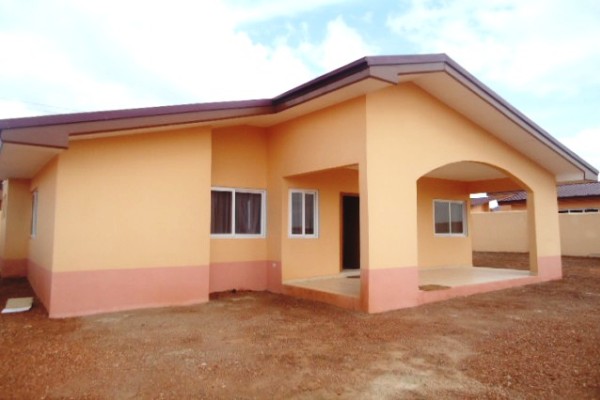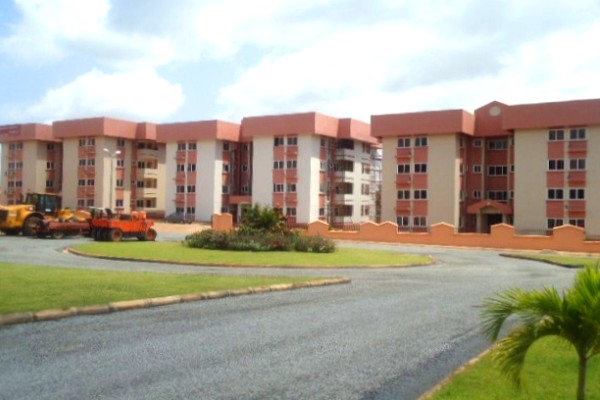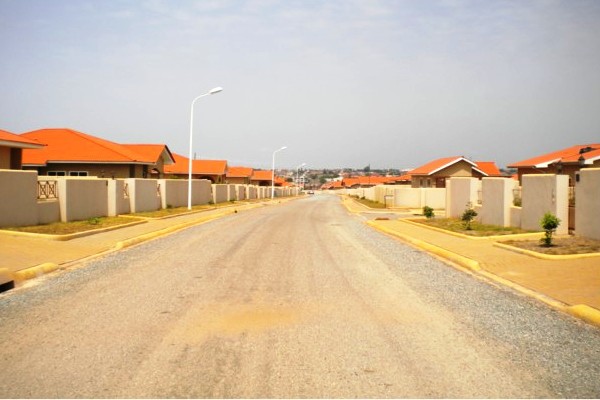Real Estate Sector in Ghana: Overview of Regimanuel Gray
Ibrahim Bah gives his assessment on the real estate sector in Ghana and presents Regimanuel Gray, a real estate development company born as an international joint-venture. Mr. Bah also mentions some of the company’s main projects and shares his vision for the future of Regimanuel.
Interview with Ibrahim Bah, Managing Director of Regimanuel Gray
To begin with, can you give us your assessment on the real estate sector in Ghana at the moment?
Because we are customer orientated, we are trying to satisfy all our customers, and therefore we are going both with the high rise apartment units and also with the bungalows which are what the average Ghanaian customer wants.
I must say the construction industry here especially in real estate is on the rise. It is a booming sector. Thankfully the middle class income level has increased a great deal due to the good Ghanaian economic situation which in turn is creating quite a lot of demand for middle class housing. The people from the diaspora, Ghanaians living abroad and also Ghanaians who are trying to move back to Ghana are increasingly turning to real estate developers due to the increased litigation in terms of land acquisition. People are using real estate developers because they know that they end up getting very good titles and once they have purchased their homes they are free of any problems.
Another major factor contributing to the boom in the real estate sector in Ghana is the large number of foreign expatriates converging into Accra. Ghana is a very good hub for foreign direct investment, both in the sub region and even in Africa as a whole. These expatriates come here to follow up their investments and consequently they need very good housing. Thus due to all of these factors we are seeing a surge in the housing industry.
As a company have you decided to focus more on affordable semidetached housing? What are the projects that you have tried to push? Where is your market?
When it comes to seeing how best we can diversify our product, I must say that Regimanuel is at a crossroad. We have to be customer orientated; providing what the customers want whilst also continuing to do what we do best. Right now, what we are seeing is that because of limited land space in our operational area of Accra, land is becoming very expensive. Therefore most property developers are going vertical because they have to recover their land costs relative to the number of housing units, in a limited space. Thus apartments are on the rise especially within a certain radius of the central Accra district which is where the expatriates etc. that I mentioned want to be. You tend to see people going for apartments that also have other advantages in terms of low maintenance and low cost.

However having said that, because of rapid urbanisation, a lot of successful Ghanaians are converging into the city and so we see ourselves heading towards the greater Accra region. We are continuing to build bungalow units which I think is what the Ghanaians want. The psyche here is about getting your limited personal space within a four walled fence; that is what Ghanaians are used to as their homes rather than apartments. I must say that because we are customer orientated, we are trying to satisfy all our customers, and therefore we are going both with the high rise apartment units and also with the bungalows which are what the average Ghanaian customer wants.
What makes your company different from others on the market? What is your speciality?
In terms of the competitive advantage of our company, we have been in this industry for over 20 years. We have seen a lot of players come and go. The people of Ghana associate Regimanuel with quality. We don’t cut corners, we make sure we get very good, tested and internationally standardised materials for the houses that we build. The other advantage that we have is that we invest a lot of money into infrastructure. We make sure we have proper drains, sewage systems, good roads, etc. areas in which other developers may try to cut corners for example by providing shallow gutters which end up causing problems for the home owners once the property developers have gone. If you ask anyone in Ghana who has purchased a Regimanuel property, they will tell you that they have never experienced any problems with the sewage, drainage or infrastructural installation. I think that is one of our advantages.
Regimanuel Group is a group of companies, like Desjoyaux Pools and Bessblock Concrete Products. Can you tell us more about the Group and how it works?
As you rightly say the Regimanuel Group involves about seven other companies. We have both vertical and horizontal relationships with these companies. There are two major factors that have led us to associate ourselves with these companies. Firstly, due to the top quality products that we use in the construction of our homes. We noticed that most of the companies in Ghana do not offer the quality of products that we use, especially in terms of bricks and some other core products that we use. So what we ended up doing in terms of getting the standardised products was to invest in some of these companies in order to get the level of quality that we are looking for. Furthermore due to our strict project management schedules we needed to make sure we could get these products on time and so we decided to diversify into some of these companies. Another reason as to why we have incorporated some of these companies into the group is due to the expansion strategy of the company. We have moved into the sub region, particularly Sierra Leone where we have two other companies. We also want to move into Liberia; we are looking at how best to implement operations there, with the land challenges that are present there. We also acquired land in Tanzania a few years ago but we still have some land litigation issues that we are trying to sort out. Therefore the reasons for these companies belonging to the group are both as part of our expansion strategy and to ensure the quality that we want.

You are also present in the USA and the UK. Is that for sales purposes?
Yes, our outfits in the UK and the USA are mostly to complement our sales outlet. We have quite a lot of customers in Europe and the USA. These customers need to be able to have peer points to go to and make their enquiries. We have established these offices for the people who have queries about their homes back in Ghana or in Sierra Leone, so that they can always go and speak to somebody who can provide them with answers and help. Also if they want to pay for products or houses that we have here, it is easier for them to direct payments to these offices.
In Ghana, companies not only in real estate but in general often tend to self-finance their projects because access to capital is really complex and expensive here; the interest rates are very high in the local banks and it´s hard to get access to foreign banks and foreign investors. How do you finance your projects?
Well, when it comes to financing our projects we actually embark on a hybrid kind of arrangement. As you rightly said the cost of financing is very high in Ghana. Also the criteria for eligibility for getting foreign investment especially from foreign institutions like the IFC, and the FMOs are very stringent. Some of these institutions aren’t familiar with the African environment and terrain, so their risk profiles for African projects are quite strict and so it can be tough for people to be eligible for their funding. We tried as best as possible to source financing from our local banks and to give our customers a kind of payment plan that could bring us some financing to then be able to go ahead with construction of the housing. I recall that initially when we started we asked our customers for down payments of around 40% before we started construction and then at a later stage we asked for another 40% and at the moment of handing over the keys we asked for the last 20%. However we found that many people found it hard to come up with the funds in this way, and so this meant that we had to augment our financing gap and had to turn to our local banks to get funding. Most of these funds from the local banks are short term loans at high interest rates. It is a balancing act between trying to get some money from the customers and also getting some funds from the banks. It is difficult and it does mean the pace at which we develop our projects is very slow. We are hoping that it will improve in the future.
How do you see the Group in 5 years’ time? What would you like to have achieved?

When we started the company we were building clusters of houses, then we moved away from that to begin building communities. Now what we are moving towards is building entire towns. As I mentioned, we have acquired a lot of land banks; in some areas we have land banks of over 2000 acres. We hope that by the time we have finished some of these projects we will have something like 17,000 houses. You must agree that with that number of houses we are no longer talking about estates but rather about towns. We want to make sure that we provide enough amenities and facilities for the residents of these estates. This means we want to provide schools, shopping centres, amusements arcades, parks, religious centres, whether it be churches or mosques, etc. We are also inviting our infrastructure stakeholders, for example the electricity and water companies to have substations within these estates so that they become fully fledge towns. This is Regimanuel´s dream for the future.
Are you referring to the projects that are on your website such as East Airport Project, Kwbenya Project or Katamanso Project or are these plans for further in the future?
Yes and No. When we started East Airport, it was a cluster of estates and every phase had about 200 or less houses. Katamanso Project for example will be ten clusters of over 400 homes per cluster. When we finish the Katamanso project we will end up having 17,000 houses. As you can see, we are evolving over time from the small estate projects that we started with, to much bigger projects.
To conclude, in terms of projects, which projects are you pushing in terms of sales?
Currently we are operating in about 5 sites all at the same time. I have mentioned that we are finishing the East Airport Project which we started 10 years ago. We are also building 2 and 3 bed apartments in the Kwbenya Project which is just outside of the central district of Accra. We also have some key projects at Tema Community 19.